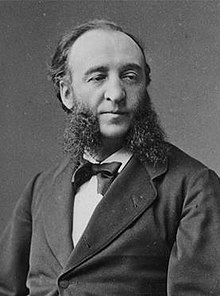Once you’ve wandered through enough cities in France, you begin to notice some similarities beyond cobblestone-lined quarters and fragrant boulangeries. Just as we do in the US, the French name their streets and schools after their most impressive men and women and many of them crop up over and over again. After a while, my friends and I began to joke that France must not have enough famous people, because there seem to be a list of maybe 20 names you can reliably find in any city of a certain size.
Charles de Gaulle is basically a given, and Victor Hugo shows up almost as often (Although, sorry France, no matter how you spell it, “Léonard de Vince” is simply not French). To pack an extra punch, they’ve also named several roads after the entire country: Rue de la République ran behind my house in Chambéry, just as it is a major thoroughfare of Lyon and an avenue in Paris (incidentally, the address of Lycée Voltaire). After meeting several of these “grands hommes” all around the country, I realized I didn’t actually know who many of them were or what they contributed to French history that makes them worthy of gracing so many public infrastructures.
So, I’m starting this series of explorations into France’s biggest and best, according to street and school names. This is Better Know a Frenchman!!!
Jules Ferry
Lived: 1832-1893
Spotted: Jules Ferry is the name of an elementary school in Chambéry, a boulevard/place in Paris (where it’s also the name of a lyceée). Even his wikipedia page mentions that numerous primary schools all across France bear his name.
Major Contributions: Jules Ferry was twice Prime Minister of France and Mayor of Paris.  As the Minister of Public Instruction, he was a major promotor of Laïcité in schools and basically completely restructured the public and higher education systems to remove the influence of the clergy. He is widely credited for creating l’école républicaine, or the modern Republican school, by making primary education free, mandatory, and secular through a set of 1882 laws known as the Jules Ferry laws. Ferry was also really into colonialism, and directed negotiations which led to the creation of a French protectorate in Tunis, prepared the treaty for the occupation of Madagascar and organized the conquest of Indochina, leading to the disastrous Tonkin Affair. His unpopular views over this political disaster eventually led to his resignation in 1885.
As the Minister of Public Instruction, he was a major promotor of Laïcité in schools and basically completely restructured the public and higher education systems to remove the influence of the clergy. He is widely credited for creating l’école républicaine, or the modern Republican school, by making primary education free, mandatory, and secular through a set of 1882 laws known as the Jules Ferry laws. Ferry was also really into colonialism, and directed negotiations which led to the creation of a French protectorate in Tunis, prepared the treaty for the occupation of Madagascar and organized the conquest of Indochina, leading to the disastrous Tonkin Affair. His unpopular views over this political disaster eventually led to his resignation in 1885.
Fun Fact: In December 1887, a man attempted to assassinate Ferry. Five years later, he died in March 1893 due to complications attributed to this wound.
Quoted: “La République doit prendre en main le citoyen du berceau jusqu’à la tombe.”



This is such an awesome concept!! I’m really looking forward to reading about the figures you choose 🙂 What a great idea!
LikeLiked by 1 person
Thank you!! I think it will be fun. I have a list to start with, but feel free, if there’s a building or road named after someone you’ve never heard of, to leave a comment so I can add him/her to the list!!!
LikeLike
Can you do one on Porte Reine? I would love to know more about her!!!!
LikeLiked by 1 person
What a great idea! My lycée was Louis Pasteur…but there was a collège nearby called Victor Hugo 😉 I think if you google-mapped “rue de (famous frenchman)” without a city Google Maps might just die of confusion.
LikeLike
Hahaha, you’re so right! The number of times I searched a street in Chambery and it tried to get me to go to Paris or Nice or Grenoble or basically anywhere! Thanks for your comment 🙂 Louis Pasteur is definitely on my list!
LikeLike
This is an excellent idea because all the streets have the same name in every city and I don’t know who anyone is because my knowledge of French history is ghastly. Can you do one on Jean Moulin? Or Jean Jaurès? Or you know, any of those dudes that they name streets after.
LikeLike
Yes!! Jean Jaurès is next on my list. He’s all over Chambery: a school and the street where the CAF office is, so I’m pretty familiar with the name haha.
LikeLiked by 1 person